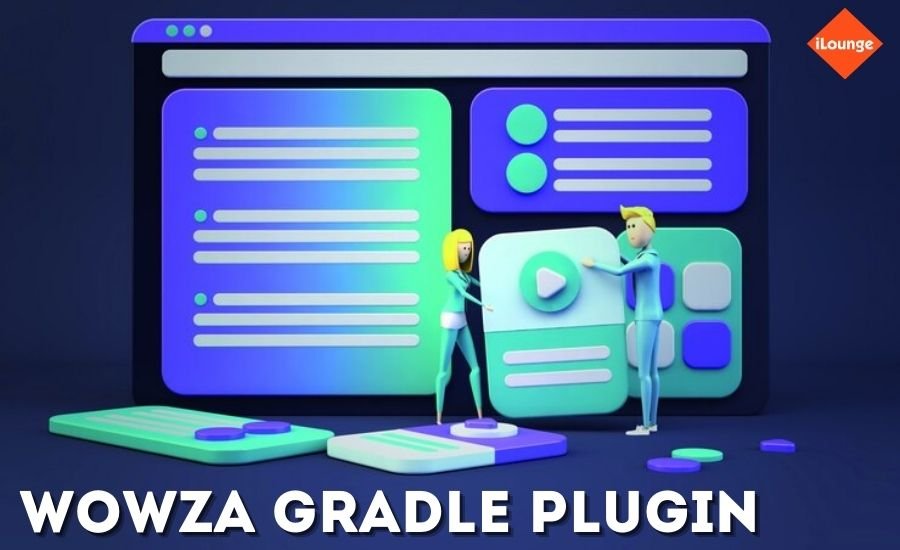The Wowza Gradle Plugin is an essential tool for developers working with the Wowza Streaming Engine. It seamlessly integrates with Gradle to automate the building, deployment, and management of Wowza modules, making it easier to handle live streaming applications. This comprehensive guide will walk you through everything you need to know, from setup and configuration to advanced customization and troubleshooting, ensuring that you’re ready to leverage the full power of the Wowza Gradle Plugin.
What is the Wowza Gradle Plugin?
The Wowza Gradle Plugin is a specialized tool that helps developers manage their streaming applications by integrating Wowza’s functionalities directly into the Gradle build system. Wowza Streaming Engine is a media server software that delivers high-quality live and on-demand video streaming. It’s known for its flexibility in supporting a variety of streaming protocols, making it an industry choice for everything from live event streaming to large-scale media distribution.
With the Wowza Gradle Plugin, developers can automate the entire Wowza management workflow—eliminating the need for repetitive manual tasks and reducing errors. This integration is valuable for anyone working in live streaming, as it provides a seamless way to manage the streaming engine, streamline builds, and handle deployments.
Why Use the Wowza Gradle Plugin?
The Wowza Gradle Plugin is more than just a convenience; it brings a level of efficiency and reliability to streaming projects that would be hard to achieve otherwise.
Key Benefits
- Automated Workflows: The plugin automates complex build and deployment workflows, allowing developers to focus on building and improving applications instead of manually handling configurations.
- Consistency Across Environments: With configurable parameters for different deployment environments, the plugin helps maintain a consistent setup in development, testing, and production environments.
- Improved Scalability: With the plugin, developers can easily scale their applications to manage multiple Wowza instances, making it suitable for small projects as well as large, enterprise-level deployments.
- Reduced Errors: By automating tasks, the plugin minimizes the potential for human error, which is particularly useful when managing multiple deployments or making configuration changes.
Real-Life Scenario
Imagine you’re tasked with setting up Wowza servers for a company’s live-streamed product launch. Each environment (development, testing, production) requires unique configurations, and manual setup is error-prone and time-consuming. With the Wowza Gradle Plugin, you can automate the server configurations, quickly deploy them, and easily transition from one environment to the next. This consistency is critical for ensuring a smooth, reliable user experience.
ey Features of the Wowza Gradle Plugin
Each feature of the Wowza Gradle Plugin is designed to simplify and enhance the Wowza development process. Here’s a deeper look at the key features:
Automated Build and Deployment
Automation is one of the main reasons to use the Wowza Gradle Plugin. Instead of manually compiling and deploying each module, the plugin allows you to run build and deployment tasks directly within your Gradle environment. This automation not only speeds up development cycles but also ensures that each build is consistent and error-free.
For example, using the gradle build and gradle deployWowza commands, developers can compile modules and deploy them automatically. These tasks can be customized to suit the specific needs of a project, providing flexibility without compromising reliability.
Effective Dependency Management
Managing dependencies manually can be complex and time-consuming, particularly in a Wowza project where multiple libraries and third-party tools are involved. The Wowza Gradle Plugin simplifies this process by ensuring that all necessary dependencies are automatically included in the project. This feature reduces the chances of missing libraries or facing version conflicts, both of which can disrupt development.
Customizable Build Scripts
The Wowza Gradle Plugin provides customizable build scripts that give developers greater control over the build process. For instance, you may need to add unique configurations for different server environments. The plugin enables you to create these configurations within the build scripts, which can then be applied consistently across all builds.
Wowza Server Management Commands
The plugin includes commands for starting, stopping, and deploying Wowza servers directly from Gradle. This feature is particularly useful for handling multiple Wowza instances, as it allows developers to manage server operations without leaving their development environment.
Setting Up the Wowza Gradle Plugin
Setting up the Wowza Gradle Plugin is simple, but getting it right is essential to avoid configuration issues later. Here’s a more detailed look at each step.
Step 1: Install Gradle
Gradle is required for the Wowza Gradle Plugin to work. If Gradle is not yet installed, download it from the official Gradle website and follow the installation instructions specific to your operating system.
Step 2: Add the Wowza Gradle Plugin to Your Project
In your project’s build.gradle file, add the Wowza Gradle Plugin as a dependency. Here’s an example of how to add the plugin:
plugins {
id ‘ro.stancalau.wowza-gradle-plugin’ version ‘1.0’
}
Ensure you replace 1.0 with the latest version of the plugin to access any updates or new features.
Step 3: Configure Plugin Settings
Configuration is the most important step in setting up the Wowza Gradle Plugin. In your build.gradle file, add the specific Wowza server settings, such as IP addresses, ports, and credentials, and configure any required build parameters. This setup ensures that the plugin can communicate effectively with your Wowza server.
Step 4: Run Gradle Tasks
Once the plugin is configured, you can use Gradle tasks to build and deploy your Wowza modules. Here are the main tasks:
- gradle build: Compiles and packages your Wowza modules
- gradle deploy: Deploys the compiled modules to the specified Wowza server
- gradle clean: Cleans up build artifacts to prepare for a fresh build
These tasks are the building blocks of an automated workflow with the Wowza Gradle Plugin.
Best Practices for Optimizing the Wowza Gradle Plugin

To maximize the effectiveness of the Wowza Gradle Plugin, follow these best practices:
Keep Dependencies Updated
Wowza and Gradle are both frequently updated, so it’s essential to keep your dependencies current. Regular updates prevent compatibility issues and ensure you’re working with the latest features.
Enable Incremental Builds
Incremental builds are a feature of Gradle that only rebuilds the parts of the project that have changed. This feature can save time, particularly in large projects where full builds can take a while.
Use Build Caching
Build caching is another way to improve build times. By caching previous builds, Gradle can reuse outputs from earlier processes, significantly reducing the time required to recompile unchanged modules.
Efficient Server Management
If your project involves multiple Wowza servers, consider creating custom tasks that streamline server management. For example, automate the process of starting, stopping, or deploying servers based on specific events in your workflow.
Troubleshooting Common Issues with the Wowza Gradle Plugin
Here are solutions to some common issues developers may face with the Wowza Gradle Plugin:
Version Compatibility
If the plugin isn’t working as expected, check its compatibility with your Gradle and Wowza versions. Consult the plugin documentation for specific version requirements and update as necessary.
Dependency Conflicts
Dependency conflicts can prevent builds from completing successfully. Gradle has tools to help you identify and resolve conflicts. Using the dependencyInsight command can be particularly helpful when trying to identify conflicting libraries.
Server Connection Failures
If the plugin fails to connect to the Wowza server, check the network settings, ensure that your firewall is not blocking the connection, and verify your server credentials.
Must Read: Linwood.Oncims
Advanced Features and Customization Options
For advanced users, the Wowza Gradle Plugin offers customization options to adapt the plugin’s functionality to your project’s specific requirements.
Creating Custom Tasks
Creating custom tasks can be a powerful way to streamline your workflow. For instance, you could define a Gradle task that deploys Wowza modules to multiple servers or automates server management during testing. These custom tasks can be added to your build.gradle file and tailored to your project’s needs.
Integrating with CI/CD Pipelines
CI/CD (Continuous Integration/Continuous Deployment) is essential for fast, reliable application updates. Integrating the Wowza Gradle Plugin into your CI/CD pipelines can further enhance efficiency, allowing for automated testing and deployment processes. This integration is especially useful in projects that require frequent updates and rigorous testing.
Performance Tuning for High-Quality Streaming
To optimize performance, configure your Wowza server for optimal streaming quality. Settings for real-time encoding, adaptive bitrate streaming, and caching can all help improve performance, particularly in high-traffic environments.
Real-World Use Cases for the Wowza Gradle Plugin
The Wowza Gradle Plugin is used by developers across a range of industries, from event streaming to large-scale broadcasting.
Small Business Example
A small business may use the Wowza Gradle Plugin to manage live streaming for events. By automating configurations and deployments, the plugin allows the business to create consistent streaming setups without a dedicated IT team.
Large Organization Example
For large organizations managing global broadcasts, the plugin’s ability to handle multiple Wowza instances across different environments provides reliability and scalability. Automating these workflows is crucial for handling high traffic and ensuring a seamless viewing experience.
Conclusion
The Wowza Gradle Plugin is a fantastic tool that makes it easy to manage and improve Wowza streaming projects. By using this plugin, developers can save time and avoid mistakes because it handles a lot of the setup and deployment tasks automatically. Whether you’re working on a small project or a big live-streaming event, this plugin keeps everything smooth and consistent, so you don’t have to worry about every tiny detail.
Overall, the Wowza Gradle Plugin is a smart choice for anyone looking to make their streaming work easier and more efficient. With simple setup steps and powerful features, it’s perfect for developers who want to focus more on creating great content and less on dealing with technical issues. Give it a try in your next project, and see how much it can improve your workflow!
FAQs
Q: What is the Wowza Gradle Plugin used for?
A: The Wowza Gradle Plugin automates building, deploying, and managing Wowza Streaming Engine projects, making development faster and easier.
Q: How do I add the Wowza Gradle Plugin to my project?
A: You can add it to your build.gradle file by including it as a plugin dependency. Follow the setup instructions to ensure it’s correctly configured.
Q: Can I use the Wowza Gradle Plugin in multiple environments?
A: Yes, the plugin is designed for use across different environments (like development, testing, and production) to keep your configurations consistent.
Q: What commands does the Wowza Gradle Plugin provide?
A: The plugin includes commands like deployWowza, startWowza, and stopWowza to manage your Wowza server directly from Gradle.
Q: Is it possible to create custom tasks with this plugin?
A: Yes, you can create custom tasks in Gradle to perform specific actions or automate workflows that fit your project’s needs.
Q: How can I troubleshoot connection issues with the Wowza server?
A: Check your server settings, firewall permissions, and credentials. Make sure everything is correctly configured in your build.gradle file.
Q: Does the Wowza Gradle Plugin support CI/CD integration?
A: Absolutely! The plugin works well with CI/CD tools like Jenkins, Docker, and Kubernetes, allowing for automated testing and deployments.
Up Next, Don’t Miss: Linwood.Oncims

Specializing in insightful and engaging articles across a range of topics. With a keen eye for detail and a passion for delivering high-quality information, Mary helps readers stay informed with the latest trends and updates


